Last Updated on 11/17/2021 by Veronica Jones
Whether you’re missing your family pet from home or want to come back from lessons to a friendly, lovable companion, owning a pet at college is a great idea.
Who doesn’t want to be welcomed home by a pet that loves you unconditionally?
If you’re thinking of getting a pet, read our guide to find out the best pets for college students and how to care for them.
Why get a pet at college?
Before we reveal the types of pets that will make a good companion during your studies, let’s discuss some of the benefits of having a pet for college students.
Boosts your mood: most pets are affectionate, which is very welcoming when you’re studying late at night or get back from an intense class.
Stress relief: it’s been proven that pets can help with stress relief, which might come in handy when your assignments are piling up on your desk.
Reduces feelings of loneliness and homesickness: if you’re used to having pets at home, the hardest goodbye that you have to make is often to a beloved pet. A pet’s company can also provide comfort when you’re missing home and the comforts that you are used to.
Encourages you to take study breaks: excessive studying won’t help you get the grades you want, so taking a well-earned break to care for your pet is a welcome change from your laptop screen and books.
10 best pets for college students
So what makes a great pet for a busy college student? Pets that are small, quiet, friendly and easy to look after will fit in well with your student lifestyle and campus or off-campus living.
Most college dorm rooms won’t accept large dogs or cats, so unless you want to consider moving into a shared household where pets were allowed, here are the 10 best pets for college students.
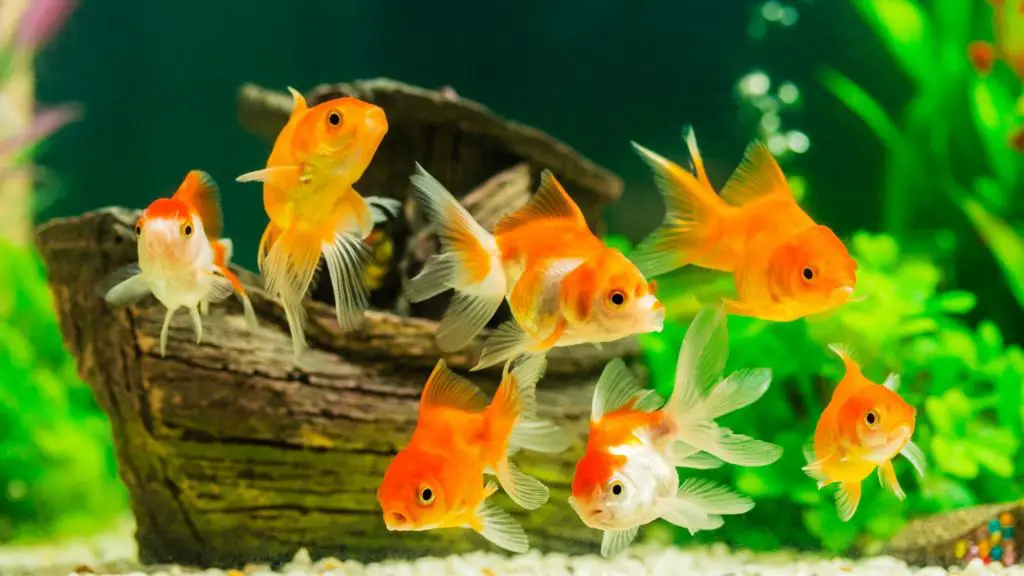
Fish
Fish are an ideal choice for busy students because they are very easy to care for.
The benefits of keeping fish at college
• Fish don’t make any noise, which means you won’t disturb fellow students who are studying or taking a nap.
• You can get relatively small tanks that won’t take up much space in your dorm room.
• Listening to the gentle hum of a tank and watching your fish swim around is a great way to relax and let your mind switch off from studying.
• They won’t cause any mess or damage any dorm furniture.
Different types of fish to consider
• Goldfish
• Guppy
• Neon tetra
• Betta fish
• Zebrafish
How to care for fish
Feeding – did you know that fish don’t have stomachs, which means that they don’t know when to stop eating? It’s important to only feed them once or twice a day to avoid your fish becoming overweight. You can buy automatic feeders that will release the required amount of food at set times while you’re out.
Cleaning – your fish tank should be cleaned at least every two weeks, depending on the amount of fish you have. For each clean you should remove any uneaten food or debris from the gravel, wipe the glass to get rid of algae and check that the filter is working properly. You should also replace between 15-20% of the water with fresh water. Don’t replace the entire amount in one go as this could shock and even kill your fish because of the sudden change.
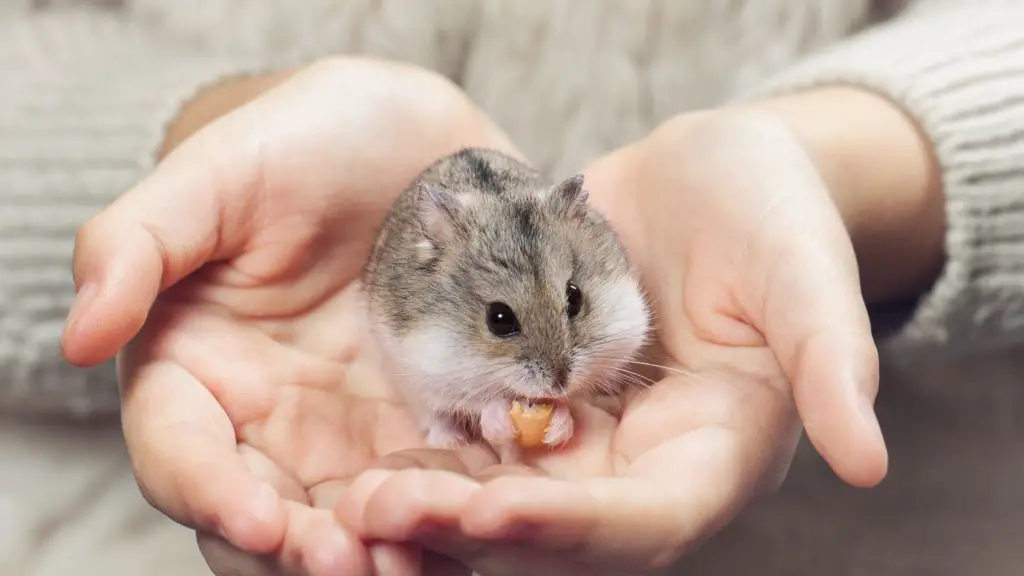
Rodents
Rodents will live happily in a cage in your dorm and require much less care than a dog.
The benefits of keeping rodents at college
• Rodents are actually clean animals who don’t like it when their environment is dirty. They groom themselves and their cage-mates regularly.
• They make wonderful companions who can recognize their owners by sight, smell and sound. You may even see their little faces get excited when you enter the room.
• Rodents are smart. They can be trained to do almost anything, including puzzles and tricks. If you’re looking for a pet that likes to learn new things, a rodent could be the pet for you.
Different types of rodents to consider
• Gerbils
• Hamsters
• A fancy mouse (a type of house mouse)
• Guinea pigs
• Rats
How to care for rodents
Feeding – rats are omnivores and should be fed a varied diet of protein, grains and vegetables. Fruit, vegetables and sunflower seeds should only be given as an occasional treat. Always provide fresh, clean water either in a bowl or water bottle.
Housing – rodents live in wire cages with a solid tray at the bottom to avoid them hurting their feet or limbs in the gaps. Litter should be placed at the bottom of the tray to capture droppings. Include a nest box to give your rodent somewhere to enjoy a bit of peace and quiet. A rodent’s home should be cleaned out at least once a week.
Exercise and entertainment – rodents will thrive on getting exercise outside of their cages at least once a day. Make sure you rodent-proof your dorm room first by closing any windows and doors and blocking any cracks in the floorboards. Electric cables should be encased in piping so that your rodent won’t chew through them. If you have a few plants in your room, move them out of the way as some can be poisonous to rodents.
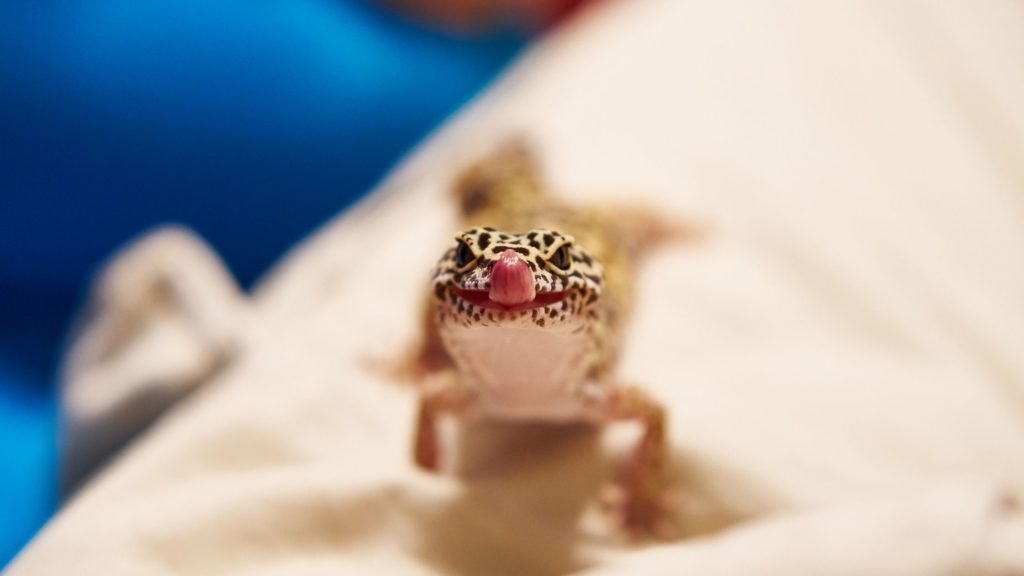
Lizard
Owning and caring for a lizard can be great fun, entertaining to watch and a good pet to interact with.
The benefits of keeping lizards at college
• Lizards are easy to handle when cleaning their cage, although they don’t need daily handling.
• These fascinating creatures are small in size, which means their cage can easily fit on the corner of your desk without taking up too much room.
• Lizards are generally healthy creatures who are less prone to injuries and diseases than other pets, which makes them a great choice for first time pet owners such as students.
Different types of lizards to consider
• Bearded Dragons
• Blue-tongued Skink
• Crested Gecko
• Uromastyx
• Leopard Gecko
How to care for lizards
Housing – lizards are cold-blooded which means their body temperature is controlled by the environment in which they live in. A vivarium will provide an enclosed environment that you can keep warm with lights enclosed in cages and fitted to the tank. The vivarium should contain lots of long branches and things that lizards can climb.
Feeding – a lizard needs to eat every day. Food should be placed in a bowl that can’t be tipped over. Special lizard food pellets should be given alongside vegetables such as carrots and cabbage and fruit such as apples and grapes. Some lizards eat insects such as crickets and mealworms which can be purchased from pet stores.
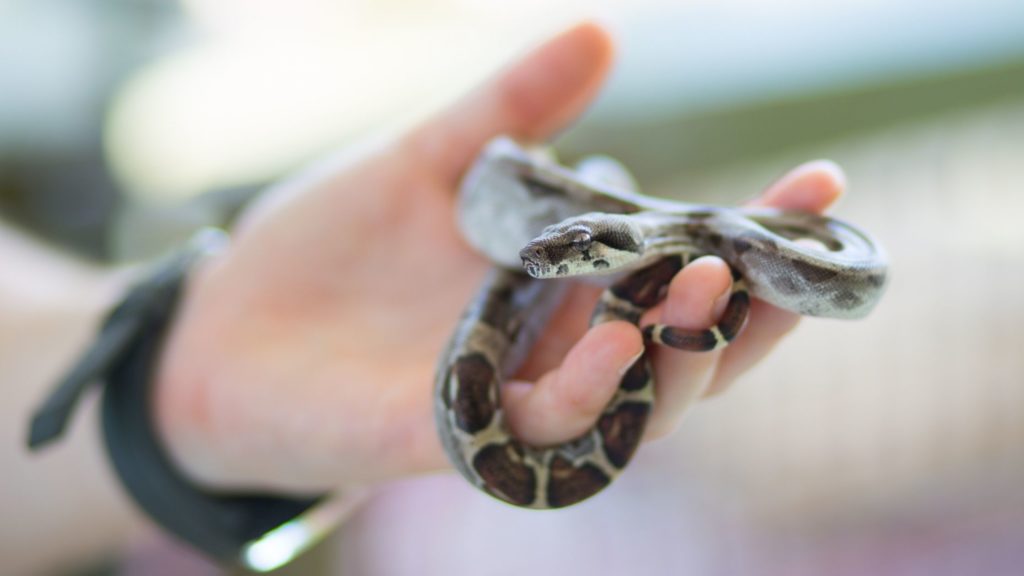
Snakes
Keeping a snake isn’t for everyone, but they do make great college pets if you’re comfortable with handling and feeding snakes.
The benefits of keeping snakes at college
• The initial price of a snake and a vivarium will vary considerably depending on the species, age and size. However, the regular costs involved with owning a snake are quite low.
• Snakes don’t require as much attention as other pets, so they are a perfect pet if you have a busy lifestyle.
• Apart from the occasional sound of digging or quiet hiss, a snake spends most of its time being silent.
• Learning how to care for a snake in the right way is educational and they are fascinating creatures to watch.
Different types of snakes to consider
• Milksnake
• Corn snake
• Green snake
• Ball python
• Sand boa
How to care for snakes
Feeding – Snakes are carnivorous and fed dead defrosted mice and other insects such as frogs or toads. Dead prey should be fed to snakes via a pair of tweezers to prevent your snake from mistaking your fingers as food. How often you feed your snake will depend on its age and size. Most small or young snakes only eat twice per week, while larger snakes will eat once a week or two. Fresh water should be provided every day.
Cleaning – regularly wash and dry food and water bowls in the vivarium. Remove any waste and debris and clean the inside of the vivarium using reptile safe disinfectant.
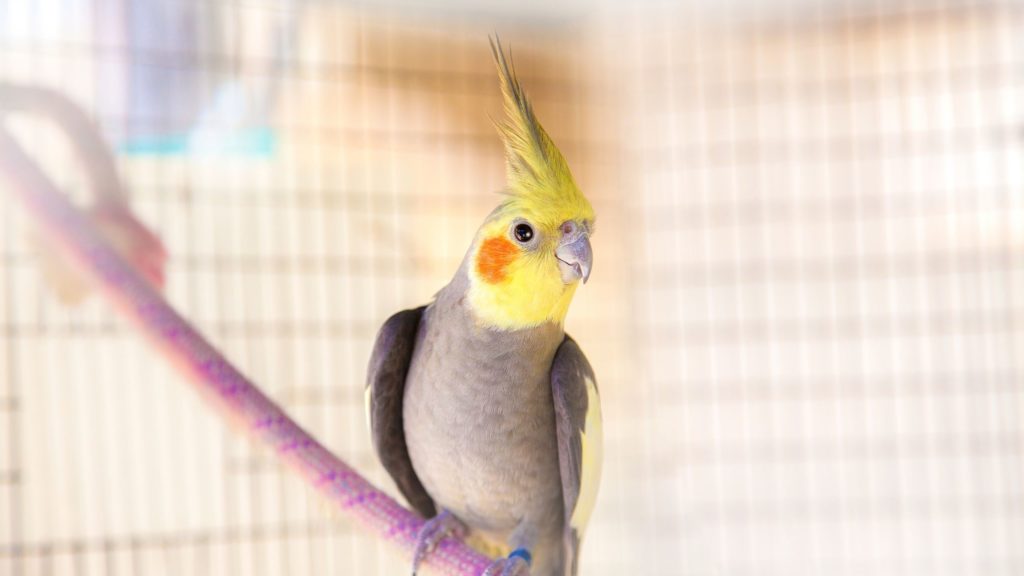
Birds
Birds are intelligent animals that make the perfect college pet.
The benefits of keeping birds at college
• The only equipment birds need is a cage that can easily fit in the corner of a dorm room. Make sure the cage is big enough for a bird to fly around in.
• Birds encourage social interaction, which is extremely important for your mental health.
• Most birds have long life spans so you won’t need to deal with the grief of losing your companion after a few years of bonding.
Different types of birds to consider
• Budgies
• Canaries
• Finches
• Parrots
• Quail
How to care for birds
• Birds need a balanced diet of seeds, fresh fruit and vegetables and a constant supply of fresh water. Canaries can die after 24 hours of no water, so if you are going home for a weekend make sure your roommate provides fresh water in your absence.
• You should replace the paper that lines your bird’s cage every day. Once a week, thoroughly clean the entire cage with bird cage disinfectant. It’s important to keep your bird’s cage clean to prevent your pet from getting diseases.
• Birds need to be kept entertained to stay happy and healthy. Bird toys and swings are a great way to keep your bird active while you’re at class.
• Provide a shallow water dish with lukewarm water for your bird to bathe itself and clean the bowl every day.
• Some birds’ nails need to be clipped a few times a year. Ask your veterinarian to show you the correct technique so you don’t puncture a vein and cause severe or fatal bleeding.
Some college dorms won’t accept birds as pets, so always check before committing to buying a bird.
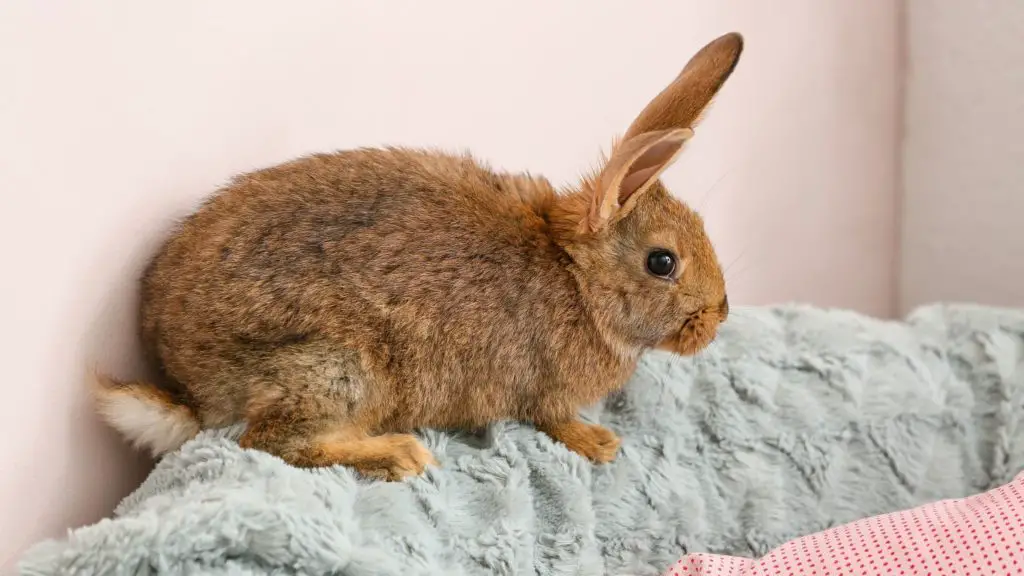
Bunnies
Owning a bunny can be extremely rewarding but they do require more cleaning and care than other college-friendly pets.
The benefits of keeping bunnies at college
• A bunny is quiet, making little to no noise.
• Bunnies have quirky personalities and are charming, affectionate and interactive. These traits make them great pets if you give them the time and attention they crave. Furry pets also give the best cuddles.
• It’s easy to train rabbis to use a litterbox or do tricks. With a few minutes of training a day you could get your bunny to jump through hoops or even fetch items.
Different types of bunnies to consider
• Holland lop
• Mini rex
• Netherland dwarf
• Lionhead
• Jersey Wooly
How to care for bunnies
Feeding – fresh food and water should be provided for your bunnies every day, including rabbit pallets and washed leafy vegetables.
Cleaning – a rabbit’s cage should be cleaned out every day. Fresh hay and bedding should also be provided daily.
Brushing – bunnies will groom themselves, however you should regularly brush your furry pet at least a few times a week to prevent your rabbit from swallowing large amounts of fur.
Exercise – you can let your bunny run around your room, providing electrical cables and anything breakable is kept out of reach. Alternatively, a playpen would make a safe environment for your pet.
Vaccinations – bunnies need annual vaccinations and check-ups to protect them against diseases.
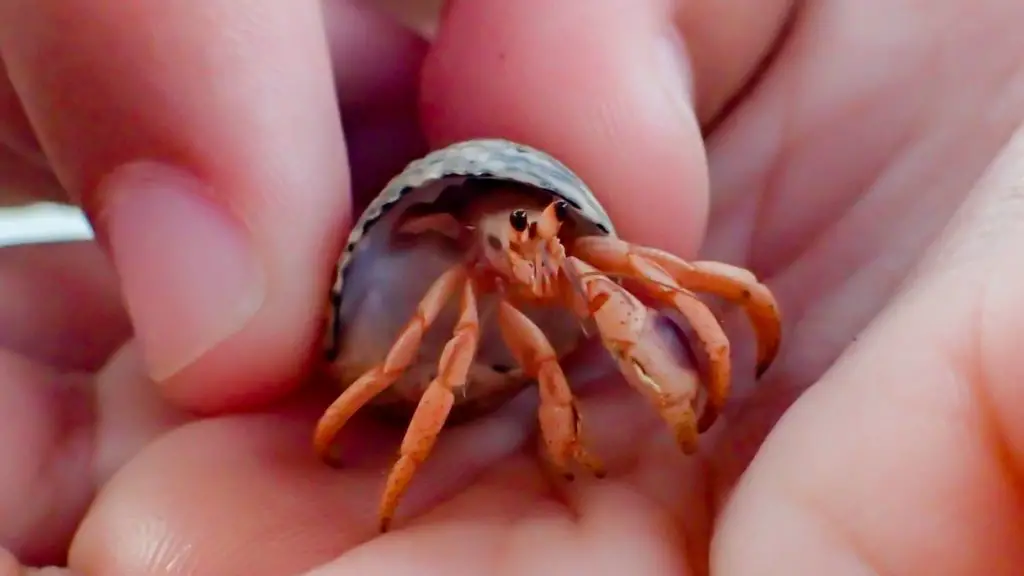
Hermit crabs
Hermit crabs are interesting, easy to care for and unique, making them one of the best pets for college students.
The benefits of keeping Kermit crabs at college
• Hermit crabs are small creatures that grow to approximately 12mm in size, so their small enclosure won’t take up much room in your dorm.
• They don’t need much food and can stay healthy on small amounts.
• Hermit crabs are fascinating to watch. They like to climb and burrow and explore their surroundings.
• Caring for your hermit crab is inexpensive. It will only require a small amount of food and cage cleaning products.
How to care for hermit crabs
Housing – hermit crabs live in heated glass tanks with fluorescent or LED lights that minim natural light cycles. The floor of the tank should be covered in soil or sand and items such as rocks should be included to replicate their natural habitat.
Feeding – hermit crabs eat at night in the wild, so it’s important to keep to the same routine in your college dorm. Hermit crabs eat powdered food or pellets which can be supplemented with leafy vegetables such as broccoli and fruit such as apple and banana. You should feed your hermit crab once a day. Always make sure your hermit crab has access to clean water.
Socialising – hermit crabs are used to living in large groups so require lots of socializing to prevent loneliness. Consider getting more than one crab at the same time to keep your pets happy and healthy.

Turtle
Turtles are the perfect low-maintenance pet that, unlike dogs, don’t require walking or exercise.
The benefits of keeping turtles at college
• Their diet is simple and easy to prepare.
• Turtle aquariums can fit in any small living space, making them an ideal pet for college students who live in dorms.
• Turtles can live for over 30 years, so if you’re looking for a lifelong companionship, turtles are a great match.
Different types of turtles to consider
• Western Painted turtle
• African Sideneck turtle
• Eastern Box turtle
• Red Eared Slider
• Yellow-bellied turtle
How to care for turtles
Feeding – Turtles are omnivorous and will happily live on a diet of fresh green produce, fruit and pellets. Bugs, worms and fish can also be offered as part of a balanced diet. Feeding your turtle a few times a week is enough to maintain their health.
Housing – turtles need at least 40 gallons to have enough space to grow. A heat lamp is needed to allow turtles to bask. Your tank should include a wet and dry area for your turtle.
Hibernation – find out how long your chosen species of turtle should hibernate and what you can do to make their hibernation more comfortable. Most turtles hibernate for 10-20 weeks every year, but some may hibernate for up to nine months.
Cleaning – A turtle’s aquarium should be cleaned regularly to stop it from smelling. You will need filtration in the water and to change the water when it’s dirty.

Small breed dogs
You may be lucky enough to live in a dorm that allows a small breed communal dog, but you need to ensure everyone takes responsibility for catering to its needs daily.
The benefits of keeping small breed dogs at college
• Dogs are a great excuse to take a break from the books and get some exercise. Not only will this benefit your pooch, but it will also benefit its owners too.
• Small dogs cost less to feed than large dogs and are much easy to transport places.
• Small breeds of dogs naturally take up less room than larger dogs. They will quite happily live in your dorm room for most of the time.
Different types of small breed dogs to consider
• Yorkshire Terrier
• Dachshund
• Poodle
• Chihuahua
• Pug
How to care for small breed dogs
Socialization – dogs don’t like being left alone for long periods of time, so make sure your dog always has someone at home to care for him.
Feeding – dogs should be fed once or twice a day. Always follow your veterinarian’s advice to prevent overfeeding your dog and causing health issues such as obesity.
Exercise – little dogs need less exercise than larger dogs, making them ideal for people who have a busy schedule. Small breed dogs need about 30 minutes of walking a day, which can be split into two 15 minute walks.
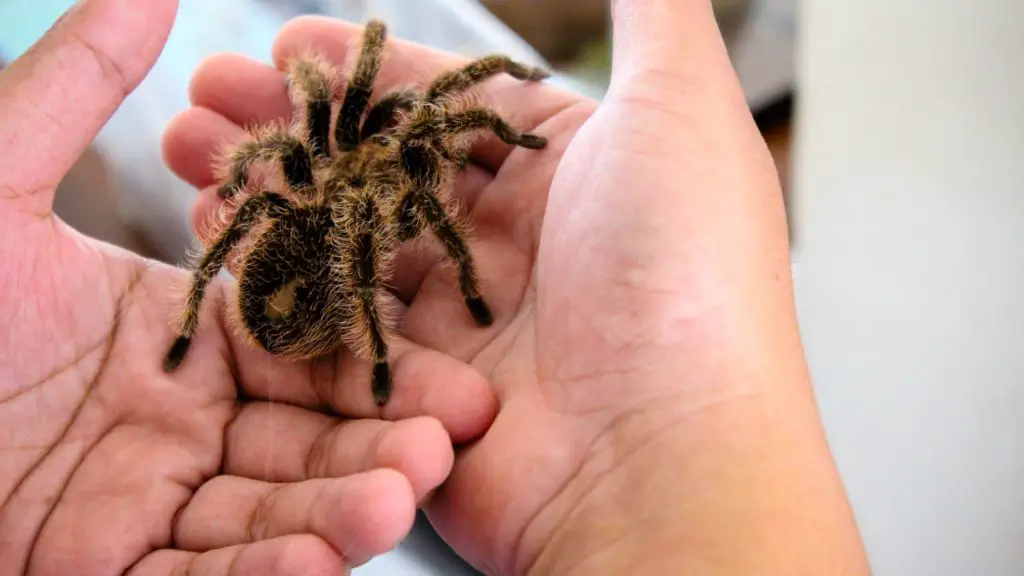
Tarantulas
If you’re not afraid of spiders, tarantulas make surprisingly good, clean pets.
The benefits of keeping a tarantula at college
• Tarantulas can’t be overfed and will only eat when they are hungry.
• These creatures are extremely interesting. You can watch a tarantula hunt, eat and change their skin from the comfort of your dorm room.
• They may look intimidating and scary, but tarantulas are actually very calm and docile.
• Tarantulas have an extremely student budget-friendly diet. They can even survive for weeks with no food.
Different types of tarantula to consider
• Mexican Red-knee
• Chilean Rose
• Costa Rican Zebra
• Mexican Redleg
• Pink Toe
How to care for tarantulas
Feeding – as a carnivore, tarantulas need live insects such as locusts and crickets to eat. These are available to buy at pet stores or online. Even though tarantulas don’t drink often, you should always make sure fresh water is available.
Housing – you will need a special spider tank that is made out of glass to keep your tarantula. The tank should include an artificial heater because tarantulas are cold-blooded and need to keep warm.
Handling – not all tarantulas can be held. The species listed above are considered ok to handle, however you should always check before buying one. A tarantula’s abdomen is very fragile, which means you should handle them with caution.

Owning a pet at college
College can be a pet-friendly environment with the right pet.
Getting a new pet is an extremely exciting time, but it’s important to choose one that suits your lifestyle and current living arrangements. Caring for a pet is a huge responsibility that shouldn’t be taken lightly. It’s best to wait until you’re settled into college to see if you can cope with study pressure and the time you need to dedicate to a pet.
Enjoy considering the low-maintenance pets in this article and choosing one that suits you the most.
Looking for More Great Articles?
- Hamster vs Gerbil as Pets
- How to find a New Home for your Small Pet?
- What Small Pet Should I Get? (Pros and Cons)
Reference list
- Society 19 “reasons to have a pet at college”, https://www.society19.com/reasons-why-having-a-pet-in-college-is-the-best/, Accessed 29th August 2021
- Pets4homes “why snakes make great pets”, https://www.pets4homes.co.uk/pet-advice/why-snakes-make-great-pets.html, Accessed 29th August 2021
- Pets at home “how to care for snakes”, https://www.petsathome.com/pet-talk/pet-care-reptile-snakes, Accessed 29th August 2021
- VCA hospitals “how to feed a pet snake”, https://vcahospitals.com/know-your-pet/snakes-feeding, Accessed 29th August 2021
- RSPCA “what vaccinations do rabbits need”, https://www.rspca.org.uk/adviceandwelfare/pets/rabbits/health/vaccinations#:~:text=Does%20my%20rabbit%20need%20vaccinations,cause%20intense%20suffering%20to%20rabbits., Accessed 29th August 2021
- Bluecross “how to choose the right small pet”, https://www.bluecross.org.uk/pet-advice/choosing-right-small-pet, Accessed 29th August 2021
- RSPCA “how to care for rodents”, https://www.rspca.org.uk/adviceandwelfare/pets/rodents/mice, Accessed 29th August 2021


